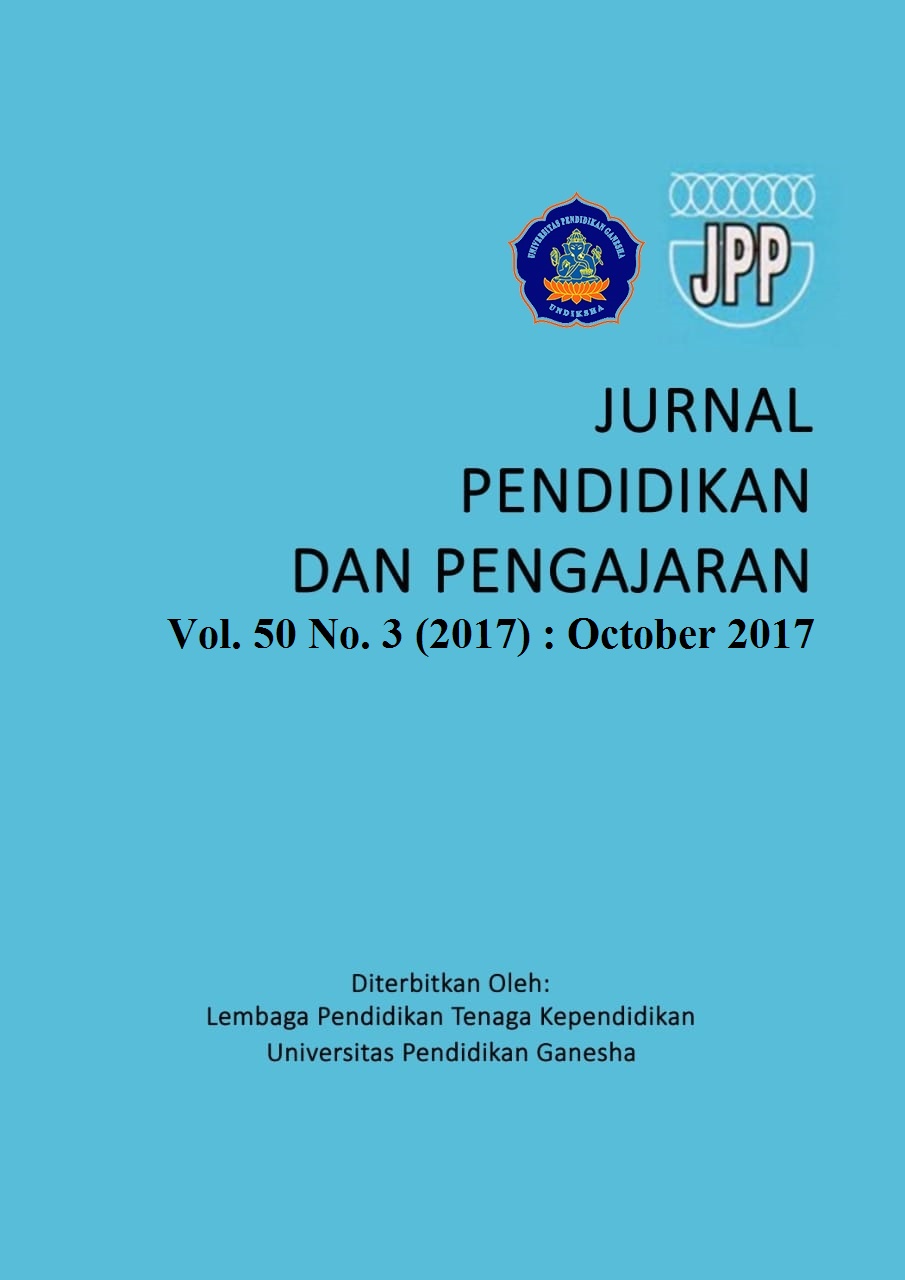THE ANALYSIS OF NEED ISLAMIC LEARNING MODEL TO IMPROVE THE EFFECTIVENESS AND QUALITY OF ISLAMIC RELIGIOUS EDUCATION IN STKIP PGRI WEST SUMATERA
DOI:
https://doi.org/10.23887/jpp.v50i3.12521Kata Kunci:
analysis, development, learning model, religious educationAbstrak
The development of various diseases of societies such as alcohol, gambling, and promiscuity, a challenge for the world of education, especially religious investigations that play a role in developing the personality of learners who knowledgeable, faithful and devout and noble. Religious education is asked to create a good curriculum is also required to have a clear learning model and measurable again directed. In the learning model, there has been a clear conceptual framework that describes a systematic procedure in organizing learning experiences to achieve the objectives of learning. Thus lecturers and students will more easily recognize and understand and undergo the process of religious learning because it has been prepared in such a way by religious lecturers. The success of applying the model of learning by religious lecturers can be measured the integration between science, faith and taqwa, and noble character in learners themselves so that they become human beings who maintained in ahsanu taqwim. Once the strategic role of religious education, it has become an urgent thing done the development of learning models of religious education in public colleges.Referensi
Arifin, M. (2003). Ilmu Pendidikan Islam. Jakarta: Bumi Aksara.
Gall, M. D., Borg, W. R., & Gall, J. P. (1996). Educational research: An introduction. Longman Publishing.
Joyce, B., & Weil, M. (1980). Models of Teaching (2nd). Englewood CIIFFS.
Lickona, T. (1996). Educating for character: A comprehensive approach. YEARBOOK-NATIONAL SOCIETY FOR THE STUDY OF EDUCATION, 96, 45–62.
Muhaimin. (2005). Pengembangan kurikulum pendidikan agama Islam: di sekolah, madrasah, dan perguruan tinggi. RajaGrafindo Persada.
Mulyasa, E. (2011). Manajemen pendidikan karakter. Jakarta: Bumi Aksara.
Nata, A. (2000). Metodologi Studi Islam. Rajagrafindo Persada (Rajawali Pers).
Romlah. (2010). Pengembangan Model Pembelajaran Pendidikan Agama Islam (PAI) Berbasis Contextual Teaching and Learning (CTL), Sebagai Upaya Meningkatkan Kualitas Pembelajaran Guru , Di SMP Kota Malang. Progresiva, 4(1), 1–20.
Unduhan
Diterbitkan
Cara Mengutip
Terbitan
Bagian
Lisensi
Authors who publish with Jurnal Pendidikan dan Pengajaran agree to the following terms:- Authors retain copyright and grant the journal the right of first publication with the work simultaneously licensed under a Creative Commons Attribution License (CC BY-SA 4.0) that allows others to share the work with an acknowledgment of the work's authorship and initial publication in this journal
- Authors are able to enter into separate, additional contractual arrangements for the non-exclusive distribution of the journal's published version of the work (e.g., post it to an institutional repository or publish it in a book), with an acknowledgment of its initial publication in this journal.
- Authors are permitted and encouraged to post their work online (e.g., in institutional repositories or on their website) prior to and during the submission process, as it can lead to productive exchanges, as well as earlier and greater citation of published work. (See The Effect of Open Access)





